A skin moisturizer does a lot for you. But there is always that misconception that every cream or lotion would get the job of moisturizing done. Could you be more wrong…
It is good to know that a skin moisturizer does a different job from your usual cream or lotion. This is especially true if you have dry or mature skin.
But choosing one can be difficult, what with so many great choices out there. So how do you know which to go for? That is what this buying guide aims to help you with.#
Table of Contents
What a Moisturizer Really Is
A moisturizer is a preparation of different ingredients and chemicals. It enables the skin to retain moisture and prevents it from drying out. It achieves this by performing two functions.
First, it augments the original moisture content of the skin. Then it sets up a protective layer that enhances moisture retention in the skin.
Most moisturizers have these major ingredients in them: water, ceramides, occlusives and emollients or humectants or both. We’ll talk about these ingredients later on and the crucial part they play in any moisturizer.
A skin moisturizer is essential due to our skin’s exposure to the weather. Factors like cold, sun or wind can greatly affect our skin’s nature.
Even simple things such as taking a long hot bath and exposure to indoor heating can affect our skin. Hence, there is a need for us to always moisturize.
It is necessary to point out here that your skin produces a natural moisturizer of its own called sebum. This is what makes us classify skin into types. Too much production results into an oily skin; little production results in dry skin.
Major Types of Skin Moisturizer
There are different types of skin moisturizers. Whichever one you eventually get is bound to fall into any of the categories below. It is therefore important to know which one you’re going for.
Moisture Absorbers
[amalinkspro type=”cta-btn-css” ctabtn-id=”11″ asin=”B00JITM6VK” apilink=”https://www.amazon.com/dp/B00JITM6VK?tag=skincareguide-20&linkCode=osi&th=1&psc=1″ addtocart=”false” new-window=”true” nofollow=”true” alignment=”alignright”]Buy this body moisturizer on Amazon[/amalinkspro]
In order to make the skin continuously moist, these soak water into the skin cells.
They work extremely well for those with thick dry skin and in areas that are humid in nature. Oily and combination skin can also benefit from this moisturizer type.
Humectants are the principal ingredients found in moisture-absorbing moisturizers. Examples of humectants which you should look out for include lactic acid, hyaluronic acid, alpha-hydroxy acid and glycerin.
Space Fillers
When the skin becomes too porous and water retention becomes nearly impossible, feel free to call on these moisturizers to save your skin.
They fill up those pores and enable your skin to retain the moisture it deserves, giving it a smoother feel. Although they could be made of water-based substances, yet most of them are oil-based.
These moisturizers work wonders for really dry skin. Mature skin can also benefit from these moisturizers.
Emollients are the principal ingredients found in space-filling moisturizers. Examples of such emollients which you should look out for include petrolatum, mineral oil and lanolin.
Skin ‘Paste’
Naturally, the skin does its best to retain moisture, all thanks to ceramides in the skin. Yet when the skin tends to look dry, it’s most likely that the ceramide level has reduced. That’s where this type of moisturizer comes in. Its singular job is to replenish ceramides in the skin.
Normal skin and combination skin types will benefit a great deal from this type of moisturizer. Also, eczema-prone skin can find reprieve and comfort from this moisturizer type.
Moisture Sealers
This moisturizer type has heavy agents in their ingredients that are intent on saturating the skin in excess moisture.
It is strongly advised that you use this type on your face. They act efficiently on dehydrated skin as well as mature skin.
Sensitive skin should please keep away from this one.
Occlusives are the principal ingredients found in moisture-sealing moisturizers. Examples of such occlusives include hazelnut oils, rosehip and avocado.
Factors to Consider When Getting a Skin Moisturizer
Your Skin Type
Our skin’s moisture content is what propels us to even think of buying a skin moisturizer. Therefore, you must consider this primarily before everything else.
The skin is complex in nature and must be treated as such. Most of the time, the nature of your skin tends to vary from part to part. So do not treat your entire body as a single entity when it comes to the use of moisturizers.
Isolate the parts based on their nature and treat them as individuals. We have listed the major below as well as the kind of moisturizer for them.
[amalinkspro type=”cta-btn-css” ctabtn-id=”11″ asin=”B01GPWPJOS” apilink=”https://www.amazon.com/dp/B01GPWPJOS?tag=skincareguide-20&linkCode=osi&th=1&psc=1″ addtocart=”false” new-window=”true” nofollow=”true” alignment=”alignright”]Buy this body moisturizer on Amazon[/amalinkspro]
Normal Skin
This kind of skin is capable of standard moisture retention as well as possessing a constant glow. Its sebum production is optimal. Skin pores are barely seen and its sensitivity isn’t harsh or easily irritated.
For this kind of skin, much work isn’t required. To keep this skin glowing, a moisturizer with a light, water-based content is required. Also, ensure that the moisturizer you choose has lots of antioxidants.
Oily Skin
This kind of skin produces too much sebum thereby causing oily patches here and there on the skin. The skin pores are clearly seen. They are prone to acne and other skin spots.
The moisturizer you choose should be an oil-free moisturizer that contains humectants such as lactic acid, propylene glycol and glycerin.
Non-comedogenic (meaning it won’t block pores) moisturizers will also help prevent clogging of the already-enlarged pores. Silicone-based moisturizers are also suitable.
Don’t buy moisturizers that have the following ingredients: peanut, cocoa butter, sesame oil or linseed.
Dry Skin
This kind of skin is usually dry in nature and sometimes cracked. They possess the tendency to peel when environmental humidity is reduced and can easily be inflamed. Itchiness is a common trait in such skin types.
Extreme degrees of dryness can lead to the skin being rough and scaly on some parts, especially those frequently exposed.
Dry skin requires moisturizers that are heavy and have large oil-based content. A moisturizer that will last all through the day should be applied to relieve the dryness.
Emollients like lanolin, mineral oil and castor oil should be checked for. Since they retain moisture in the skin, they would serve well.
Moisturizer with adequate sunscreen is a must. Never go below a sunscreen with an SPF value of 30.
[amalinkspro type=”cta-btn-css” ctabtn-id=”11″ asin=”B00WB8843Y” apilink=”https://www.amazon.com/dp/B00WB8843Y?tag=skincareguide-20&linkCode=osi&th=1&psc=1″ addtocart=”false” new-window=”true” nofollow=”true” alignment=”alignright”]Buy this body moisturizer on Amazon[/amalinkspro]
Combination skin
This type of skin is a mixture of both dry and oily skin characteristics. Some parts might be dry while some other parts might be oily.
From your face, you can easily detect if it is combination skin. The T-zone (forehead, nose and chin) is oilier than other face parts.
For such skin type, pay careful attention to avoid either increasing the more oily parts instead of the dry parts. In this case, one moisturizer cannot get the job done.
The T-Zone area on your face is usually oily. Your use of a moisturizer in this area should be minimal. You can apply on your T-zone an oil-free moisturizer and a heavier-oiled one on your cheeks.
Remember we mentioned one moisturizer cannot be sufficient for combination skin. This is one of the reasons.
Sensitive Skin
Due to its sensitivity, a moisturizer with fewer ingredients will suit this skin quite well. 10 ingredients should be the maximum number.
Let your moisturizer choice be one that is fragrance-free, dye-free, paraben-free and one that is less likely to cause an allergy. Look for the word “hypoallergenic” to that effect on product’s container.
Avoid highly concentrated ingredients which might do you more harm than good. Lanolin, for example, is like the Babe Ruth of irritants; it’s at the top and a classic.
If your skin is hyper-sensitive, it won’t be out of place to test the moisturizer on a small part of your skin. Then wait to see for 24 hours to see if you experience any form of irritation.
For one having issues with eczema on the skin, petrolatum ought to be your best friend. When you go looking for that suitable moisturizer, look for it as an ingredient. It will help you repair the cracks in your skin and give it flexibility.
Moisturizers containing antioxidants such as pomegranate, lycopene or green tea can do magic for mature skin. They counteract molecules that result in the disintegration of skin cells.
Seeing as we grow older this is what happens. Antioxidants will give your skin that healthy, fresh and young look.
The Season
Change in season can also affect your skin’s nature. Ergo, this should be greatly considered when getting your moisturizer. Winter can cause more dryness to your skin even though naturally you have oily skin. But in the summer, your skin may become oily even though you naturally have a dry one.
Basically, your skin condition per time determines the kind of moisturizer you employ. And climate changes affect your skin.
[amalinkspro type=”cta-btn-css” ctabtn-id=”11″ asin=”B003QXZWYW” apilink=”https://www.amazon.com/dp/B003QXZWYW?tag=skincareguide-20&linkCode=osi&th=1&psc=1″ addtocart=”false” new-window=”true” nofollow=”true” alignment=”alignright”]Buy this body moisturizer on Amazon[/amalinkspro]
Location
If you’re usually in an air-conditioned room or live in the temperate regions, then your skin would tend towards dryness. An oil-based moisturizer should be your pick.
Also if you live in a tropical region, your best bet would be a moisturizer that is water-based. When the temperatures spike up, your skin begins to produce more sebum. Therefore using an oil-based moisturizer will be counter-productive.
Nevertheless, you should pay more attention to what your skin says than the location you find yourself in.
Avoid these Ingredients in Your Skin Moisturizer
You should avoid the following as much as possible:
Colouring and Perfumes
These have the tendency to be irritants and for someone with sensitive skin, that can be disastrous. So stay away from moisturizers that have these labelled as ingredients.
Excessive Acids
Acids like salicylic acid, retinoic acid, glycolic acid and alpha-hydroxy acids can be dangerous for dry and sensitive skin. These acids can easily permeate through the porous skin and disturb the underlying layers.
Products with Alcohol
Alcohol can dry out even the most balanced and normal skin if used excessively. It is important you check the alcohol content of any moisturizer you want to buy. If you can, avoid it totally.
Also, remember this: Don’t pick a moisturizer because it’s expensive and you think it is of good quality. Price isn’t a good indicator of effective moisturizer that suits you.
How to Get the Best of Your Skin Moisturizer
i. One moisturizer may not be enough. This is for everyone but especially for those with combination skin.
ii. You are to apply a moisturizer when your skin is moist, not when it is dry. This should be either immediately after bathing or after washing the part you want to moisturize.
iii. Always get a moisturizer that has sunblock as well. An SPF value of 30 is the recommendation, especially for dry skin.
iv. Your moisturizer should be used after any other skin treatments, not before it. This is especially true when it comes to your face.
v. To further enhance the effects of your skin moisturizer, it is advisable to use soaps that also contain some moisturizer.
vi. Give special attention to the driest body parts when moisturizing.
vii. Be sure to pair your moisturizer with a really effective serum. It serves as the layer upon which you apply your moisturizer.
In conclusion, choose a moisturizer that suits you. And to do that, your skin type must be the determining factor.
With the guide above, you should be smiling home with a moisturizer that will enhance and protect your skin.
[amalinkspro type=”cta-btn-css” ctabtn-id=”11″ asin=”B075G3RJDZ” apilink=”https://www.amazon.com/dp/B075G3RJDZ?tag=skincareguide-20&linkCode=osi&th=1&psc=1″ addtocart=”false” new-window=”true” nofollow=”true” alignment=”alignright”]Buy this body moisturizer on Amazon[/amalinkspro]

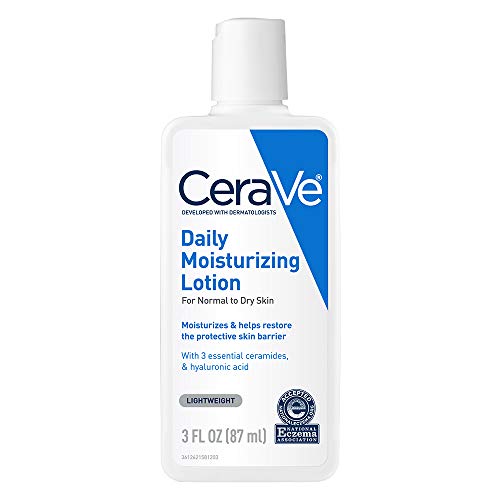
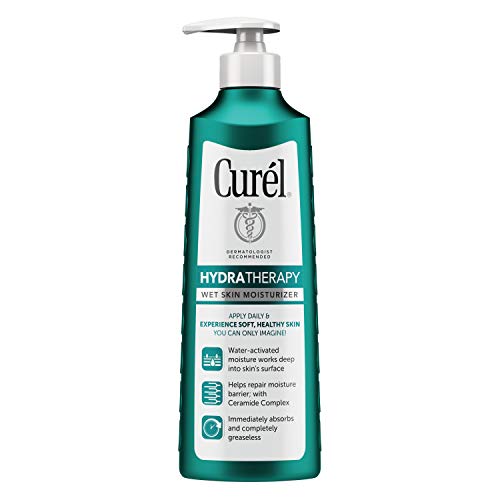
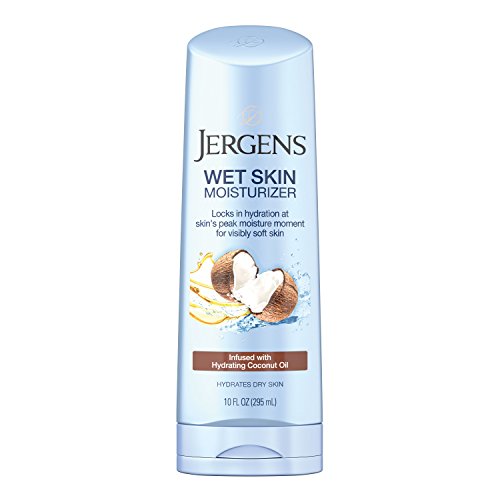
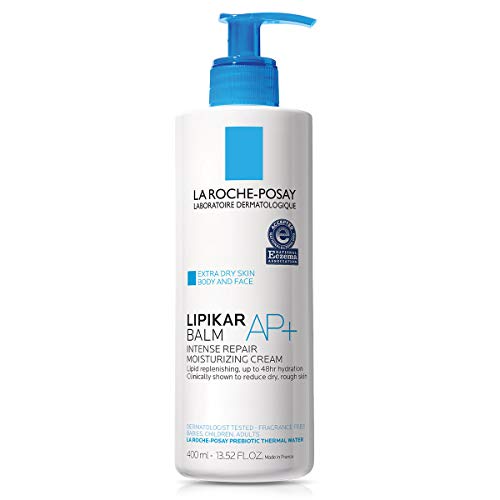

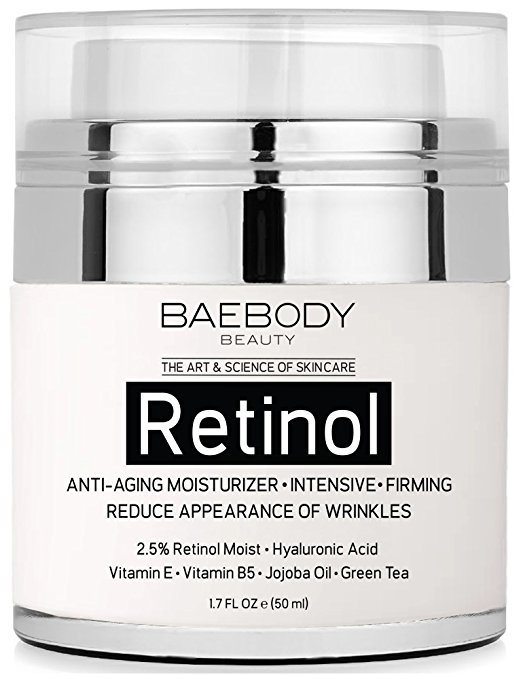
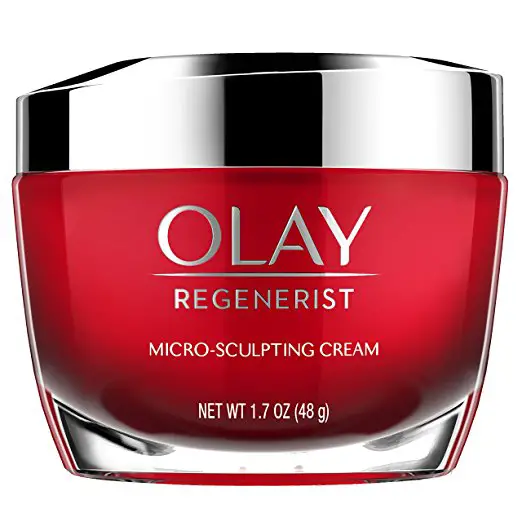
Pingback: Skin Cream: Relevant Information You Need before Buying One - Skin Cream
Pingback: Face Toner: Not Just an Optional Skincare Product - Skincare Products Guide
Pingback: Anti-Aging Eye Cream: Get Back That Glow in Your Eyes
Pingback: Skin Firming Cream: You Do Not Have To Look Your Age
Pingback: Aftershave: A Necessity Not an Afterthought - Skincare Products Guide
Pingback: Acne Face Wash: The First Step to Loving your Face Again - Skincare Products Guide
Pingback: Hand Cream: Your Hand’s Handy Help - Skincare Products Guide
Pingback: Cracked Heel Cream: Your Guide to a Healed Heel
Pingback: Acne Soap: Remove Acne with an Easy Wash Always
Pingback: How to Improve Sagging Skin on Legs - Detailed Answer
Pingback: Jergens Natural Glow vs L’Oreal Paris Sublime Glow Moisturizers – Detailed Comparison